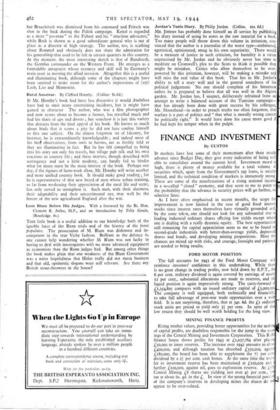Jordan's Tunis Diary. By Philip Jordan. (Collins. los. 6d.)
MR. JORDAN has probably done himself an ill service by publishing his diary instead of using hs notes as the raw material for a book. Too many people will throw down this volume in irritation, con- vinced that the author is a journalist of the worst type—embittered, egotistical, opinionated, smug in his own superiority. There would be a measure of justice in such criticism, for humility is a virtue unpractised by Mr. Jordan and he obviously never has time to meditate on Cromwell's plea to the Scots to think it possible they might be mistaken. Critics who allow themselves to be over- powered by this irritation, however, will be making a mistake and will miss the real value of this book. That lies in Mr. Jordan's ability to tell a story well and in the general soundness of his political judgement: No one should complain of his bitterness unless he is prepared to believe that all was well in the Algiers garden. Mr. Jordan has, I suspect, deliberately refrained from an attempt to write a balanced account of the Tunisian campaign— that has already been done with great success by his colleague, Mr. Moorehead—in order to preach truths too often forgotten, th warfare is a part of politics and " that what is morally wrong cam): be politically right." It would have done his cause more good if he had kept his temper when in the pulpit.


























 Previous page
Previous page